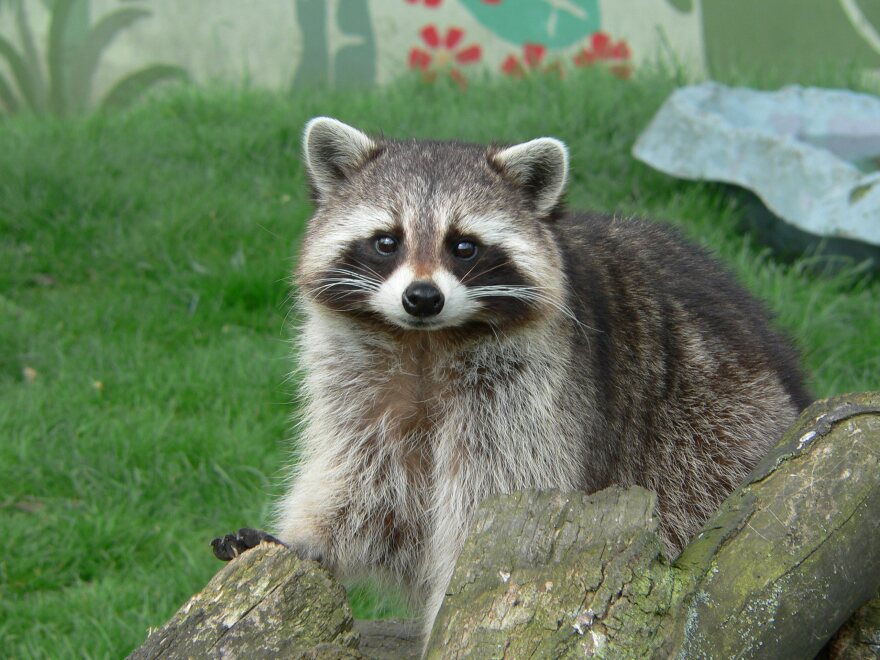Rabies is a disease that attacks the central nervous system. The virus is carried in the saliva of infected animals and most commonly transmitted through a bite from rabid animal. Almost any mammal can be infected by rabies but not all are carriers. The most common animals that carry rabies are skunks, foxes, bats and raccoons.
In an effort to reduce the extent of rabies in raccoons, Wildlife officials are dropping raccoon bait laced with a special rabies vaccine into wooded areas in more than a dozen Alabama counties. The raccoons find the bait and eat it, thereby ingesting the vaccine.
It’s easy to recognize a raccoon, with a face that looks like it’s wearing a bandit mask, and that distinctive ringed tail. They’re very adaptable animals, and survive in the city as well as the countryside. They’re social animals who seem to get along well with humans. And then there’s that food washing thing they do with their hands - I mean, paws - that makes them seem, well, sort of human. So a lot of folks try to feed them and domesticate them, not realizing the serious health risk that raccoons can pose to both people and pets because of the threat of rabies. While a dog or cat can die in less than ten days after being bitten by an infected animal, a raccoon may live for years with the virus - which makes a raccoon a dangerous animal to keep in your yard, much less your house.
The raccoon bait is dropped in wooded areas because it contains a modified live vaccine, which could cause health problems for humans who eat it, or even touch it with bare hands. It could cause mild digestive upset for a pet that eats a raccoon rabies vaccine packet. But for the raccoons, or even coyotes or foxes who eat it, it could be a real lifesaver - by reducing the risk of rabies for everyone, especially when you’re speaking of pets.
__>^..^<__


